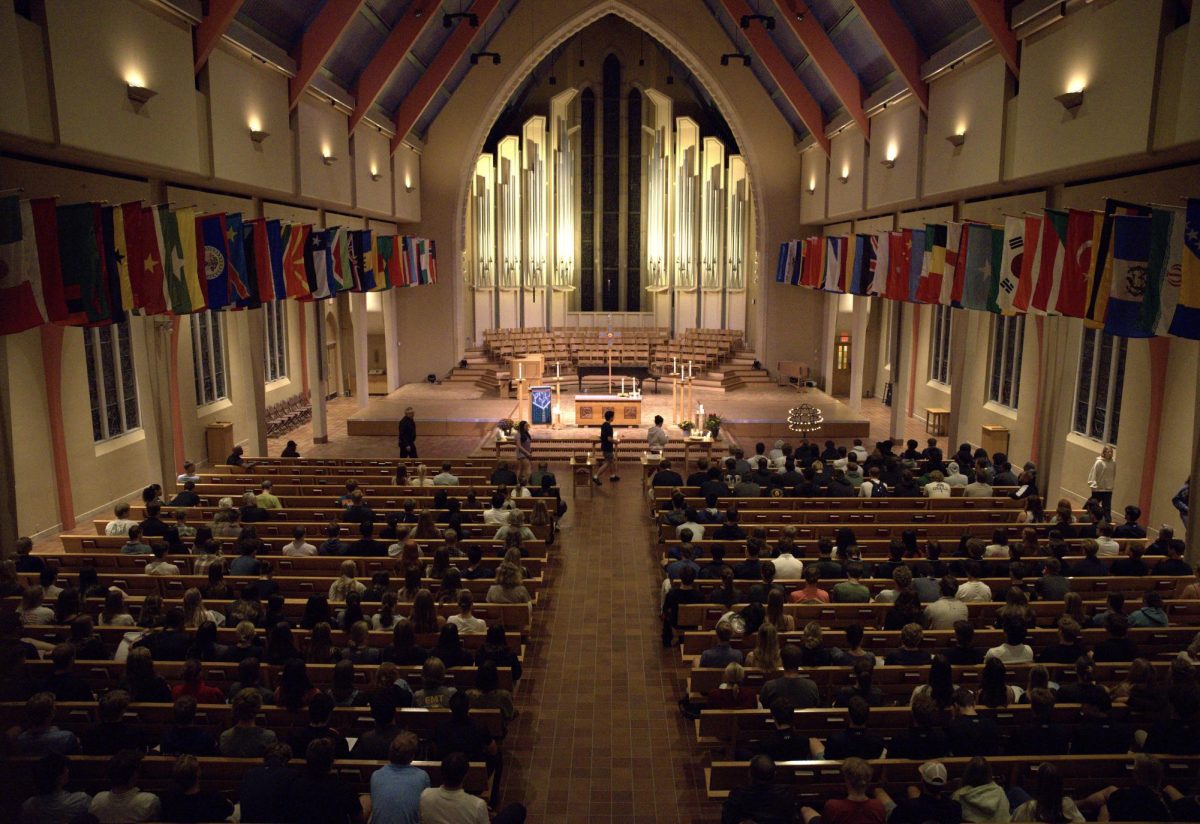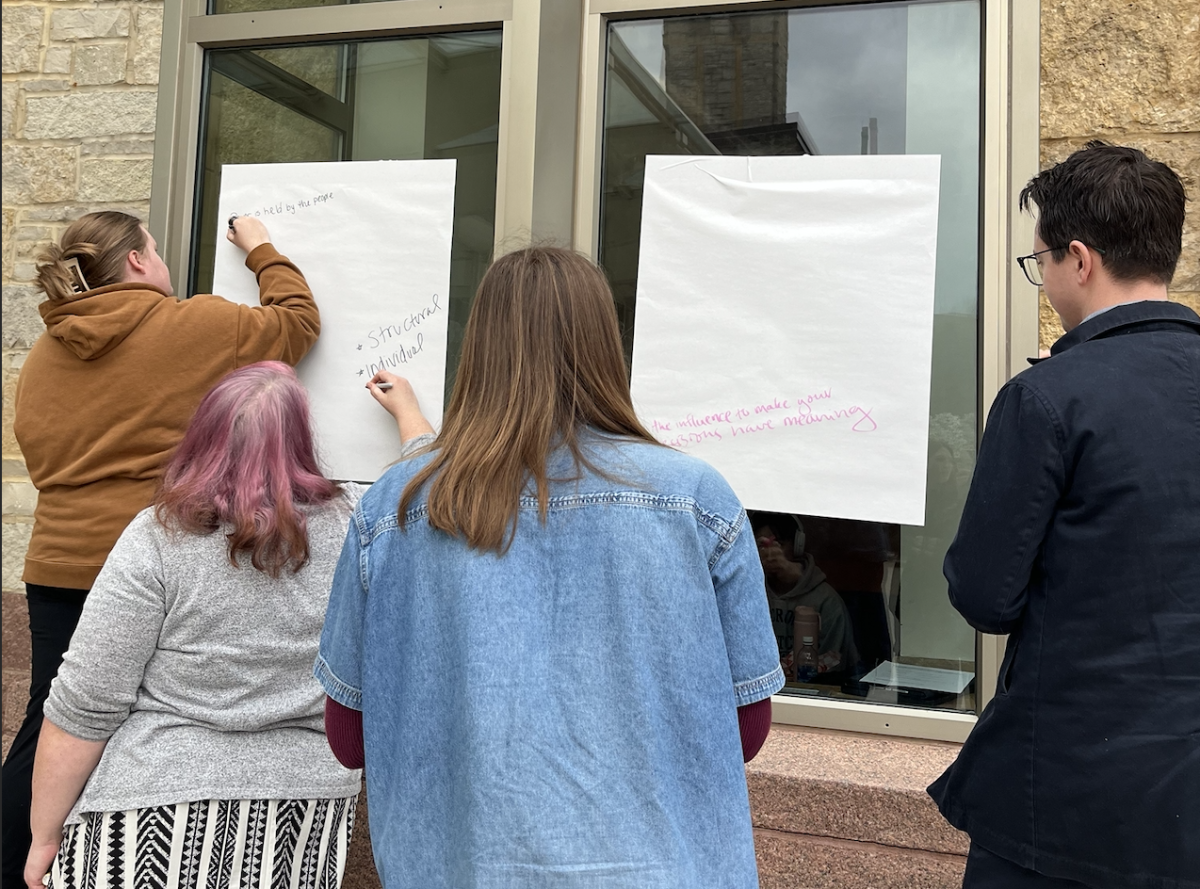Students may think they have found another new summer internship opportunity when they stumble upon the Social Entrepreneurship Scholars SES program on the Piper Center for Vocation and Career’s website. The program, formerly known as Leaders for Social Change LSC, sports a new name to make it consistent with titles of other St. Olaf cohort internship programs, or programs in which a group of students share similar experiences. But the name change also signals a reformulation and major reduction of the past program.
Students participating in SES will complete a two-month-long summer internship with a stipend and will form an intentional community valuing social impact and reflection on vocation, a similar experience to that of past LSC participants. Students rank their top four choices of internships from a pre-selected list created by the Piper Center and interview with potential internship providers before receiving their final placement.
Since 2011, students in the LSC program have applied to work either in Northfield or the Twin Cities, with eight to ten students living together in a house at both locations. The inauguration of SES coincides with the elimination of the Northfield house, and thus also the program’s summer internship opportunities in Northfield. The consolidation of the LSC program will reduce the number of participants by half. Ten students will still be accepted to intern in the Cities and live in a house on the Macalester College campus.
According to Nate Jacobi, associate director for service and leadership in the Piper Center, the reduction comes from of a lack of funding. SES, like LSC, is funded both by the Piper Center and the Kloeck-Jenson Endowment for Peace and Justice, a fund not controlled by the Piper Center.
“The last few years there were extra funds available” [in the Kloeck-Jenson Endowment], but those funds have been spent down,” Jacobi said. Although the endowment still supports SES, its role is more limited, thus requiring cuts to the program.
While SES has eliminated the Northfield house, it has added possible internships with for-profit companies such as Ecolab Inc., in addition to the non-profit and governmental internships previously offered. SES’s shifting focus from social change to social impact reflects expanded opportunities within the program.
“[Focusing on social impact means] addressing social problems or intentionally developing some aspect of a community,” Jacobi said.
Jacobi appreciates the wider range of internship opportunities. “It has the potential to draw in students with a broader range of interests,” he said. Jacobi also noted that the switch to a St. Paul-based program could increase alumni involvement in periodic seminars attended by participants.
Most importantly, Jacobi stresses that the focus on intentional community and structured reflection will continue with SES. To Jacobi, the program remains unique because of the wide range of internships students can complete and the opportunity for students living together to learn from and explore each others’ experiences.
Many past LSC participants also see living in community as valuable. Sam Adams ’15, who worked with So How Are the Children in summer 2013 in Faribault through LSC, says he thrived on the many conversations focusing on race, class and gender issues.
“It was really empowering to be with a group of people all wanting to get as much out of the summer as possible,” he said.
Hana Ferronato ’14 agreed. “Being in a community with other people asking similar questions but coming from differing places sparked tense discussions where we often disagreed, but where we supported each other and grew together,” she said.
Ferronato’s first word to describe her summer 2012 experience was “intense.” She enjoyed being around people equally concerned about an unjust and unequal society.
However, Ferronato is saddened that SES will not continue the Northfield house. After living in Northfield for the summer, she felt much more connected to the community that had surrounded her while she was on the Hill but which she had not known well.
“The summer made me aware of how many wonderful social services are in Northfield and how many socioeconomic issues there are on which those services do work,’ she said.
Matthew Aguilar-Champeau ’14, a 2012 participant, thinks the name change indicates a shift to less radical, more resume-friendly language. “The name change does matter,” he said. “Social change is a pointed term. It means that on a deep level, society is not right.”
Ferronato sees the change as a move by the Piper Center away from funding service endeavors.
“I came to St. Olaf because of its focus on service,” she said. “One of the most enriching parts of its Lutheran heritage is to receive an education not only for ourselves, but to give back to the world.”
Although critical of the cuts, Ferronato is relieved that funding limitations have not led to the program’s demise.
Rachel Morrison ’15, who will be turning in her application for SES 2014 by the Feb. 27 deadline, looks forward to being incorporated into an established organization that is doing good work.
“I look forward to working with people who are putting their passions into practice,” she said.
While SES will be a smaller program than LSC, the Piper Center has increased the number of St. Olaf-sponsored summer internships offered. In addition, students can now seek funding for unpaid and underpaid internships through the Piper Center.


